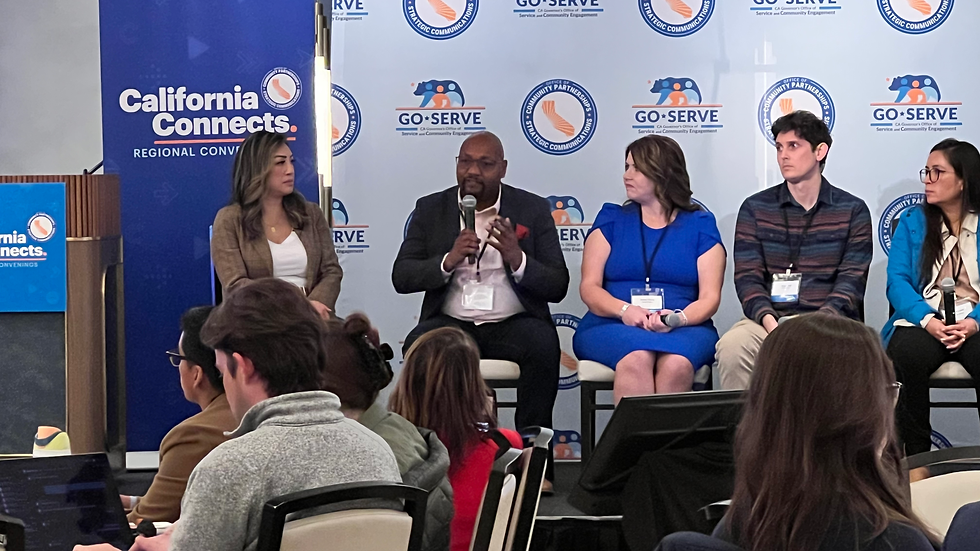Fresno City Council passes modified CR budget, $92.8 million COVID-19 plan and Advance Peace
- The ONME Newswire

- Jun 30, 2020
- 3 min read
Advance Peace program to receive $300,000.00 in funding over the next three years
By ONME Newswire

Edit: Title revised
FRESNO, CA – Today, the City of Fresno council members passed a modified continuing resolution (CR) budget that rolls over amended appropriations for Fiscal Year (FY) 2020 into the first quarter of FY2021 and factors in Council motions to provide a bridge that allows the City of Fresno to continue to provide essential services to the community and the employees that provide those services until the fiscal picture becomes clearer.
Council approved the modified CR unanimously by a 7-0 vote, as well as an amended resolution for an expenditure plan for $92.8 million in coronavirus funding from the Federal government.
“Thank you to our Councilmembers for their support in passing a modified continuing resolution that allows the City to continue fulfilling its responsibilities to our residents while giving us the necessary time to better understand the fiscal impacts of this pandemic and propose sensible steps to address any shortfalls," said Mayor Lee Brand.
Among the programs that has been awaiting a source of funds for over two years is Advance Peace, a program that gives gang members a different choice at a better life economically and educationally. Although Fresno residents expressed concerns early on about the use of tax dollars toward this program involving gang members, Advance Peace has proven to be successful in other parts of California.
In 2007, Richmond, CA was America’s ninth most dangerous city for anyone to live. A MotherJones.com article from August 2014 discussed the rampant homicide rate in the Bay Area that law enforcement and anti-crime programs were battling to no avail. A state of emergency was declared for the city in 2006, due to the constant violence.
Advance Peace founder and community consultant Devonne Boggan found a different way to handle the abundant crimes happening in his city: he presented a proposal to Richmond city officials which included identifying the most likely criminal perpetrators and paying them $300-$1,000/month to stay out of trouble, starting with small groups of 50 versus entire neighborhoods and keeping track of their high-risk behavior. The coordinators, former convicts themselves, would then patrol the neighborhoods to monitor these small groups’ behaviors, mentoring them away from dangerous situations that lead to permanent outcomes.
With a mixture of mentoring and a stipend to turn their lives around, these small groups of misguided, high-risk culprits would qualify to be in the program based on their dense criminal background and being under the age of 25—within six years, the number of killings per residents dropped by over 66%, as these would-be-perpetrators are instead guided to obtain a driver’s license, a GED or career-tech training.
“Early in my tenure as Neighborhood Safety Director for the city of Richmond California, I learned that very few, if any of those suspected of having committed a firearm offense (60-70% of which had also avoided a criminal justice consequence for their suspected acts of gun violence) were being engaged or served by either a public or community based system of care,” stated Sam Vaughn of the Richmond Office of Neighborhood Safety. “They were however being given a great deal of investigative attention and focus from a variety of law enforcement capacities. And even still, gun violence persisted!”
Vaugn also stated on the Advance Peace website that the lack of opportunity for the young, troubled men escalates their condition with the option to turn to violence.
“Although I understand how difficult it can be to provide services to individuals who appear to be resistant to change, who are also chronically unresponsive to such ‘opportunities,’ I find it extremely problematic that if these young men want help, they have very few options to receive viable assistance that is responsive and provide healthy impact
#COVID19 #coronavirus #CRbudget #funding #MayorLeeBrand #DevonneBoggan #AaronFoster #AdvancePeace #ONMENews #Blackmedia #Blacknews #ONMETV #AfricanAmericanNews #Californiamedia








Comments